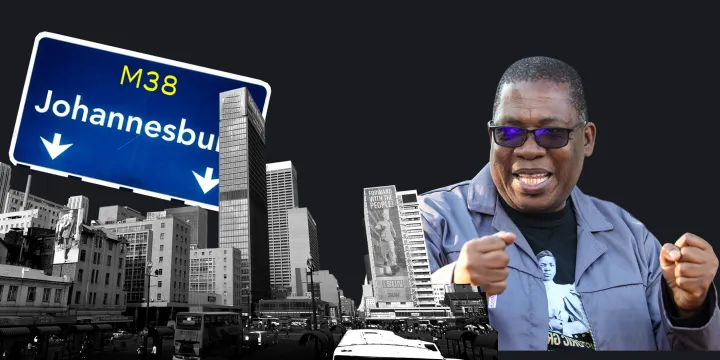- The City of Johannesburg’s R6 billion debt to Eskom threatens electricity stability, raising concerns over prolonged power outages and economic risks for the city.
- Overspending on salaries and overtime at City Power, coupled with accusations of cronyism, has outraged residents, who demand accountability for alleged misuse of public funds.
- With infrastructure maintenance costs topping R40 billion and a significant overdraft shortfall, calls for a national bailout are intensifying amid fears of a total financial breakdown.
The City of Johannesburg is grappling with a severe financial crisis that jeopardizes the stability of South Africa’s largest metropolitan area, following what critics describe as a pattern of governance and management failures. Mounting challenges in financial management, public services, and infrastructure maintenance have raised urgent concerns among residents and watchdog groups. Recent political changes, driven by Gauteng Premier Panyaza Lesufi and EFF leader Julius Malema, have added further uncertainty as the city confronts its deepening troubles.
CITY OF JHB IN CRISIS:
After Panyaza Lesufi and Julius Malema made deals to takeover the COJ, it has been one disaster after the other. Yesterday it was revealed that City Power owes Eskom over
R6 billion
Today is is revealed the entity is spending a staggering R118 million… pic.twitter.com/FPKx38pBBL— Goolam (@goolammv) November 9, 2024
Escalating Debt with Eskom Threatens Power Stability
Central to Johannesburg’s crisis is a substantial R6 billion debt owed by City Power, the city’s electricity provider, to Eskom, the national power supplier. This debt casts doubt on Johannesburg’s ability to sustain its electricity supply, with observers warning that the city could soon face widespread outages, disrupting both daily life and the local economy. Various groups are urging national authorities to step in and stabilize Johannesburg’s power infrastructure before these disruptions escalate further.
Overspending on Salaries Sparks Outcry
Excessive spending on salaries and overtime within City Power is another significant concern. Reports reveal the utility has exceeded its salary budget by R118 million, with accusations that many high-salary employees lack proper qualifications and were hired through nepotism and political connections. Residents and civic organizations are expressing outrage over what they see as gross mismanagement of public funds, calling for greater oversight and an end to political favoritism in hiring. Additionally, City Power’s R86 million annual overtime expenditure has raised alarms over potential inefficiencies and poor planning, with critics suggesting that funds should be redirected to infrastructure maintenance and essential repairs.
Infrastructure Maintenance Crisis
Throughout Johannesburg, deteriorating infrastructure is straining public services, with a reported R40 billion backlog in maintenance. Roads, water systems, waste management, and public safety facilities have all suffered from years of neglect, prompting warnings from analysts that the city risks further service breakdowns if these issues are not addressed. For residents, the impact of failing infrastructure on quality of life is becoming increasingly evident, as they bear the brunt of prolonged neglect.
Alarming Overdraft and Calls for National Bailout
Financial instability is further reflected in the city’s overdraft account, which has been exceeded by R671 million, signaling a desperate need for fiscal intervention. Many analysts argue that a national bailout may be the only viable solution to stabilize Johannesburg’s finances, although concerns remain that such a measure could perpetuate financial mismanagement without meaningful reforms.
Public Outrage and Calls for Accountability
Public dissatisfaction has intensified over allegations of corruption and misuse of funds, with residents expressing frustration at the apparent looting of public resources. Accusations have even implicated high-profile figures such as Julius Malema, raising demands for a full investigation to ensure accountability. Civic groups and residents alike are calling for transparency and reforms that would ensure public funds contribute to essential services rather than be lost to corruption and mismanagement.
Future of Johannesburg Hangs in the Balance
With Johannesburg’s financial crisis reaching a critical point, city officials face mounting pressure to enact meaningful reforms and restore public confidence. While calls for a national bailout grow, questions linger as to whether such financial support would foster sustainable recovery or merely reinforce the cycle of mismanagement that led to the current predicament. The city’s leadership now faces a pivotal moment to either implement essential changes or risk a financial breakdown that could undermine Johannesburg’s future.






















